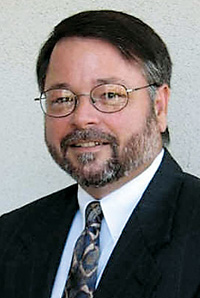WASHINGTON - When it comes to Medicare's requirement that all Part B providers become accredited, look for 50% of the nation's independent pharmacies to say forget it, says Bob Weir, a surveyor for the Accreditation Commission for Health Care (ACHC). Most pharmacies don't do enough DME business to justify the expense of becoming accredited, says Weir, who has worked as an ACHC surveyor for the past four years. When it comes to standalone DMEs, however, Weir expects most to go through the accreditation process. With 40% or more of their income tied to Medicare, they can't afford not to. HME News talked to Weir recently to get his bird's-eye view of the accreditation landscape. Here's what he had to say.
HME News: How are the surveys you're doing today different from the ones you did four years ago?
Bob Weir: The type of clientele that we dealt with four years ago was generally extremely large, and usually the reason for accreditation was managed care contracts. Accreditation was the entrance fee to become a managed care provider. Now we see everything from multi-branch corporations to small independent pharmacies with HME departments.
HME: How does your workload break down?
Weir: The surveys we are doing are people who have done it or who have been working on it for a while or who need their triennial accreditation surveys. The inquiries are from just about everyone else. People who are working on the process want to get it down because they are afraid there is going to be an onslaught and they won't be able to get a time slot for their survey.
HME: Do you think that is a reasonable concern?
Weir: That depends on how CMS mandates compliance. If they give everyone five years, people can slow down. (If not), you could easily have people who have to initiate the process and complete it in a short period of time.
HME: Of the 100,000 or so Medicare Part B providers, you say only 6,000 are accredited. That's just an amazing number of providers who still need to get accredited.
Weir: This is a Category 5 hurricane and we've got a sea wall set up for a Category 3. The three national accreditors (JCAHO, CHAP and ACHC), with 200 surveyors, can't do it.
HME: Do providers need to hire a consultant to guide them through the accreditation process?
Weir: No. Some of the best surveys I've ever done were done by lay people with no HME background, and I've seen consultants fail miserably. If you have a conversation with a consultant or attend a seminar or sign up for some kind of online training, whatever the process, the dealers must make sure they have a clear understanding of what they are going to receive in the way of resources from that organization.
HME: When you do surveys now, are you seeing certain issues or problems showing up frequently?
Weir: The quality improvement or quality assurance section is more geared toward the hospital side, and if the provider does not have any hospital or acute care background, there is a good chance he is not going to understand the intent of the section. The intent is improving your services, addressing issues or problems you have. There is never a finish line. It is an ongoing process.
HME: How does a provider get started on accreditation?
Weir: I would say to at least start getting information from the accrediting organizations, find out what the fees are. If you can, get a checklist or some type of support from the accreditation organization to get you started, focusing on things such as fire safety, job descriptions, human resources. The majority of things on the checklist are requirements that regulatory organizations already have in existence.




Comments